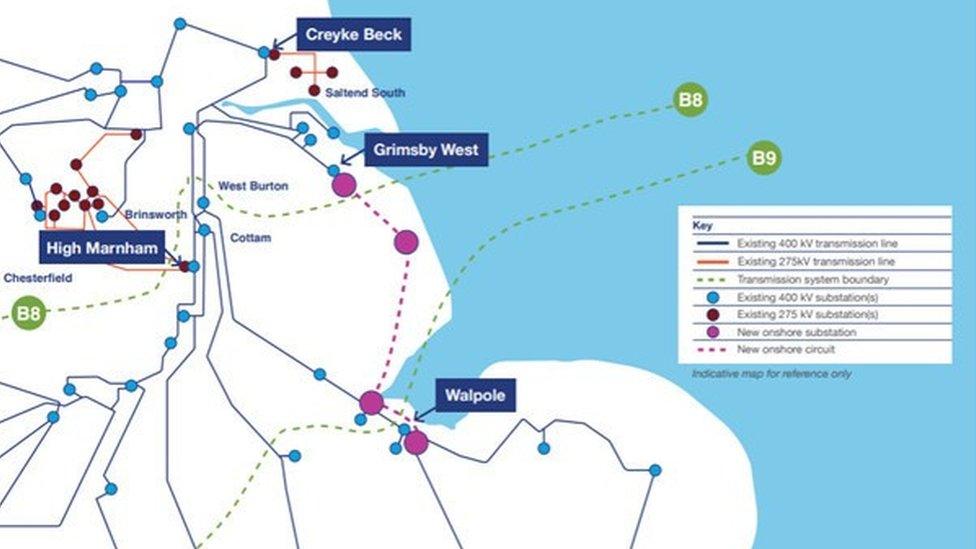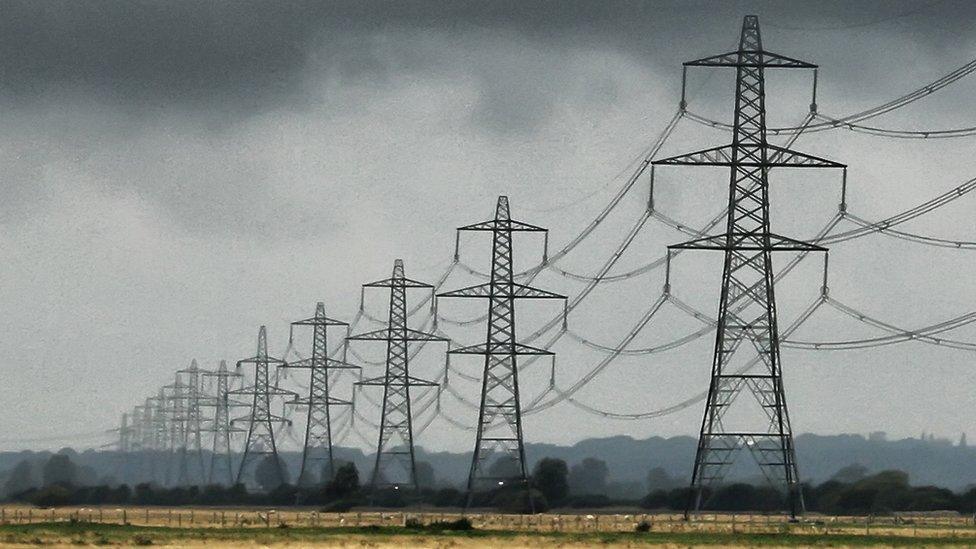Lincolnshire pylons: Campaigners criticise National Grid plan
- Published

National Grid said the pylons are needed to transport power from offshore wind farms
Campaigners have branded plans to build a pylon network across Lincolnshire as "disheartening" and "disrespectful".
National Grid said the structures were needed to transport electricity 87 miles (140km) between Grimsby and Walpole in Norfolk.
Residents and council officials have raised concerns about the plan's impact on the countryside.
Opponents said the cables should run underground but National Grid said pylons were significantly cheaper.
More than 1,000 people have signed a petition against the plans, which were announced last week.
Tabitha Siddorn, 21, who started the petition, said her family of farmers had lived for generations in the small village of Beesby, near Alford.
"It's a very scenic place where we live and to find out that National Grid is wanting to put these huge pylons along the countryside was really disheartening," she said.
"It's not actually bringing anything to Lincolnshire, it's power for London. They are going to be destroying wildlife and ruining the future of agriculture."

One of those impacted by the proposals is Tabitha Siddorn, 21, who lives near Alford
The proposals form part of The Great Grid Upgrade, which is claimed to be the largest overhaul of the grid in generations.
It is part of plans to transport power from offshore wind farms around the UK.
Fellow opponent Piers Pike, 28, said the proposals showed "a blatant... disregard for the people of rural Lincolnshire".
"It's disrespectful and [we] will not stand for it," he added.

National Grid issued a map showing the route the pylons would take
County councillor Colin Davie previously claimed Lincolnshire was being used as a dumping ground for green energy projects that benefitted other parts of the country.
A spokesperson for National Grid said: "We understand that plans for new infrastructure, including pylons, can cause concern in nearby communities, and we will be giving careful consideration to environmental and community impacts."
In response to comments about burying the cables underground, they said the firm had a duty to deliver value for money.
The proposed scheme would cost about £2bn, compared to a cost of about £6.5bn for underground cabling, according to the Local Democracy Reporting Service.

Follow BBC East Yorkshire and Lincolnshire on Facebook, external, X (formerly Twitter), external, and Instagram, external. Send your story ideas to eastyorkslincs.news@bbc.co.uk
Related topics
- Published18 January 2024

- Published26 November 2023

- Published21 November 2023

- Published19 November 2023

- Published30 September 2023
